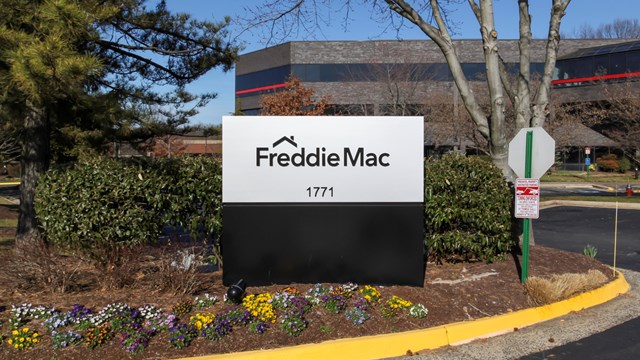The numerous, rapid conversions of the 1980s resulted in many cases of sponsor default in the early ‘90s. But as the number of building conversions slowed in the ‘90s, it seems that potential conflict between shareholders and the sponsor may have disappeared as well. Today however, though no longer as abundant, problems still occur, and shareholders and board members alike need to be aware of difficulties they may face when sharing the building with a sponsor.
The General Business Law (GBL) and the Attorney General’s regulations under the Martin Act (Article 23-A of the General Business Law) govern conversions. The Martin Act applies to the sale of all types of cooperatively owned real estate. This includes the sale of co-op shares, condo units or interest in homeowners’ associations. The law requires that a complete description of these kinds of real estate interests be fully disclosed in the offering plan. No advertising or sales may take place until the Attorney General accepts the offering plan for filing. Before accepting a plan for filing, the office reviews the offering plan and other supporting documents submitted by the sponsor in order to determine whether the sponsor has complied with tenant protection laws and whether the plan appears to disclose all of the information required by laws and regulations issued.
When the plan is accepted, the Attorney General indicates only that the sponsor appears to have complied with the law—responsibility for full compliance lies with the sponsor. It is here that problems arise when the sponsor does not fully comply, and shareholders should keep a watchful eye out for sponsor negligence when it comes to control of the board, fulfilling obligations in the offering plan, and so on.
Completing the Conversion and Keeping Promises
Richard Nardi, an attorney with Manhattan-based Corbin, Silverman & Sanservino LLP, feels that one of the biggest issues between sponsors and board members is making sure sponsors keep promises made in the offering plan. This is especially true when a sponsor stops selling shares, even though the offering plan indicated that the shares would be sold, and not simply held by the sponsor. "When a building converts and the sponsor still owns apartments and rents them out instead of selling, it becomes a problem," says Nardi. "There are still some who don’t want to sell, though I think this has decreased dramatically."
The offering plan must include all material fact. For instance, if the sponsor intends to stop selling apartments after a certain number are sold, this fact should be included in the offering plan. Since the offering plan contains all the detailed information necessary for a purchaser to make a reasoned judgment about the decision to buy or not to buy, it is assumed that anything the sponsor proposes in the plan will be followed through.
In regard to this type of situation, David Berkey, an attorney with Gallet, Dreyer & Berkey in Manhattan and co-chair of the New York State Bar Association, Condo and Co-op Committee, discusses the GBL (349-350)*, which deals with truth in advertising. In effect, if an offering plan is not followed and the sponsor decides to stop selling, shareholders are being deceived. "That law is held to apply to cooperatives, so buyers are able to make a decision on whether or not to purchase."
According to Berkey’s partner, attorney Stanley Dreyer, holding shares is also a violation of the philosophy of conversion. "When there’s a vacancy, some sponsors may think, ‘Why should I sell when rental market is good?’" The result is a building in limbo, in part made up of shareholders, with tenants of the sponsor also residing in the building. "Problems can occur when sponsors are sitting with perhaps 30, 35 or 40 percent of shares in a building that never really turned co-op."
Berkey mentions a case his firm is handling, representing shareholders in a 90-unit building in which the sponsor hasn’t sold an apartment since 1988, resulting in 60 percent of the building unsold. Upon vacancy, the sponsor is getting market rent.
When the sponsor is not selling, it’s difficult for current owners to sell, should they want out of the situation. "You end up with people being forced to sublet because they can’t sell their co-ops," Berkey says.
The promises made in the offering plan apply not only to the proposed sale of units, but to promised maintenance and repairs as well. "The sponsor may also fall behind on repairs, replacing windows, getting a new refrigerator put in," adds Nardi.
Board members should stay informed to make sure the offering plan is kept current—seeing that the sponsor meets its financial obligations and keeps promises. If there are no unsold shares, or units are not being offered for sale, the offering plan may not be current. "The sponsor must submit a financial disclosure amendment and the offering plan must be current,"says Nardi. The sponsor must include whether it is current in obligation for this building, list other buildings it is a sponsor of, and also indicate whether or not it is current with any those obligations. If the offering plan is not kept current, then shareholders may have a legitimate claim against the sponsor.
In addition, Marc Luxemburg, Esq., a lawyer with Snow Becker Krauss, PC, in Manhattan and president of Council of New York Cooperatives and Condominiums (CNYC), suggests finding out if the sponsor gave himself any kind of "sweetheart lease"—a long term-lease to itself or an affiliate, below market rent for the garage or commercial space.
Control of the Board
"When the sponsor controls the board, it controls information," says Nardi. This can result in shareholders being kept in the dark about pertinent issues as well as their goals not being met.
Giving up control means that the sponsor cannot nominate a majority of directors. However, the sponsor may still vote for shareholders who hold similar views, as long as the sponsor does not give these shareholders money. Even if the sponsor’s presence isn’t the majority, it can still affect voting. Says Dryer, "If the board consists of seven people—four shareholders and three [representatives of] sponsors, and a resident shareholder sides with the sponsor, that could tip a decision to the interest of the sponsor instead of the shareholders." This can happen when hiring a managing agent, and results in a managing agent who works for the interests of the sponsor.
"The best idea is to get an independent manager," suggests Nardi. Susan Hewitt, president of Cheshire Group, a Manhattan investment group specializing in co-ops, agrees. "The greatest abuses occur when the sponsor hold the majority of the board and controls the managing agent," says Hewitt.
"Shareholders need to be aware of the sponsor’s voting rights," says Luxemburg. "Purchasers have to be careful and aware of limitations on sponsors’ voting rights." This information can be found within the bylaws and proprietary lease, which include how many seats the sponsor is allowed on the board of directors, and when the sponsor must give up control. In most cases, sponsors must give up control of the board after five years, or after they sell more than 50 percent of their shares in the building—depending on which comes first.
A Sense of Community
When owner occupancy is low, there is a reduced sense of community. The presence of temporary residents and the absence of resident owners in the building take away from the cooperative that was implied in the offering plan. Getting control away from the sponsor is the first step in building that cooperative community.
"Cooperatives need to learn how to self-govern. They can’t do this if someone else holds control," says Hewitt. "The sponsor’s interests are not the same in terms of issues like quality of life and major capital improvements." With self-governance comes decision-making based on the interests of the shareholders.
An area such as maintenance costs may cause a rift between shareholders and sponsor. In the worst-case scenario, the sponsor’s decision to rent apartments instead of selling could limit the ability of shareholders to get mortgages.
When trying to remedy a conflict with the sponsor, Berkey suggests first negotiating, and then considering other alternatives—such as writing to the Attorney General—before bringing suit. It is possible to settle before heading to court, such as in a case Berkey mentioned where the sponsor agreed to a timed sales plan.
According to Luxemburg, litigation with the sponsor is not unusual, especially in the situation of a newly constructed condo. It’s very likely that in these instances, where there’s a question as to whether or not the completed construction is what the offering plan called for.
"I think the wave of sponsor defaults has come and gone," says Luxemburg. The biggest problems now, he believes, are control issues and completing the conversion. But even though the number of sponsor-shareholder conflicts has decreased in recent years, it doesn’t hurt to be prepared by being able to spot sponsor mis-steps and violations.
Ms. Mannino is a freelance writer living in Montclair, New Jersey.







4 Comments
Leave a Comment